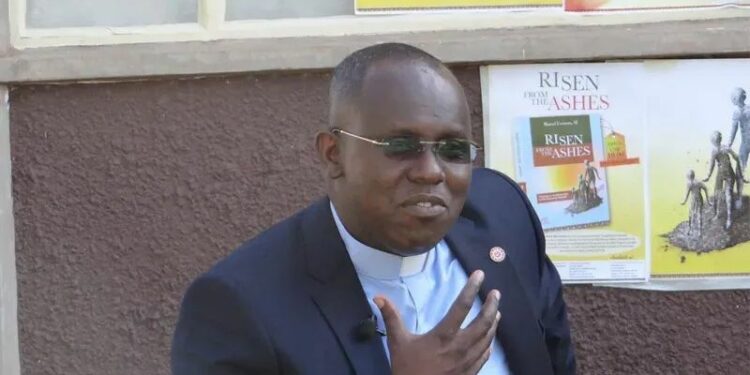Those who suffered in the genocide also “left an unfinished agenda,” he said. “Telling their stories is joining their fight for dignity.”
Uwineza said the story of the genocide against the Tutsis must also continuously be told to counter the narratives of genocide deniers, who he said are on the rise, especially on social media platforms.
It is also important that other countries learn from Rwanda that violence leaves behind deep wounds, and some of these wounds never heal, Uwineza further said.
“Unfortunately, the only lesson we learn from history is that we don’t learn anything; we don’t seem to have learned from what happened in Rwanda,” he lamented.
Uwineza underlined the need for Rwanda to engage with its history, painful as it may be.
“After the genocide, we stopped teaching the history of Rwanda because the history we had was very divisive. But we can’t continue ignoring our past if we have to move forward,” he said. “Messy as it has been, it is our past. We therefore must engage it and own it. We all were wounded, and therefore, we need constructive history that will unite us.”
To heal, Rwanda also needs “a prophetic Church,” he told ACI Africa.
“At the time of the genocide, the Rwandan population was around 80% Christian. Yet all these merciless killings happened, some at religious places. As a Church, we must stop and ask ourselves what went wrong,” Uwineza said.
“We must develop a theology of hope and reparation that looks back to where we went wrong and one that envisions a better future so that these things are not repeated,” he continued.
“We must also acknowledge that some leaders in the Church made mistakes and that they do not represent the Church. We must also recognize Christian heroes who were killed trying to save lives,” he said.
According to Uwineza, a prophetic Church must also look at who is missing at the table of dialoguing into a better future. “Are women included at this table, given that they have made a lot of contributions in the civil society spaces?” he asked.
(Story continues below)
Subscribe to our daily newsletter
On April 11, Uwineza gave an address at Villanova University on the topic “Women Peace-builders in Rwanda Since Genocide,” highlighting how a section of the Rwandan women affected by the genocide have risen above their wounds to contribute to the healing process of the country.
He said that since the genocide, the status of Rwandan women has improved.
“Alongside their male counterparts, women chose to look beyond the horizon of tragedy. Women’s participation in associations, credit groups, and farm cooperatives has grown greatly,” Uwineza said, noting that women in the Rwandan Parliament have promoted laws that protect women against gender-based violence.
Additionally, after the genocide, women joined support groups and organizations such as Pro-Femmes, an advocacy organization for women; Abasa, an association of women who were the sole survivors of the genocide in their families; and Ineza, a sewing cooperative of women living with HIV as a result of the genocide.
“These women created a new landscape where they could breathe new air through their work and sharing of experiences. Others forged a new future for their children,” Uwineza told ACI Africa on April 14.
This story was first published by ACI Africa, CNA’s news partner in Africa, and has been adapted by CNA.
Credit: Source link


